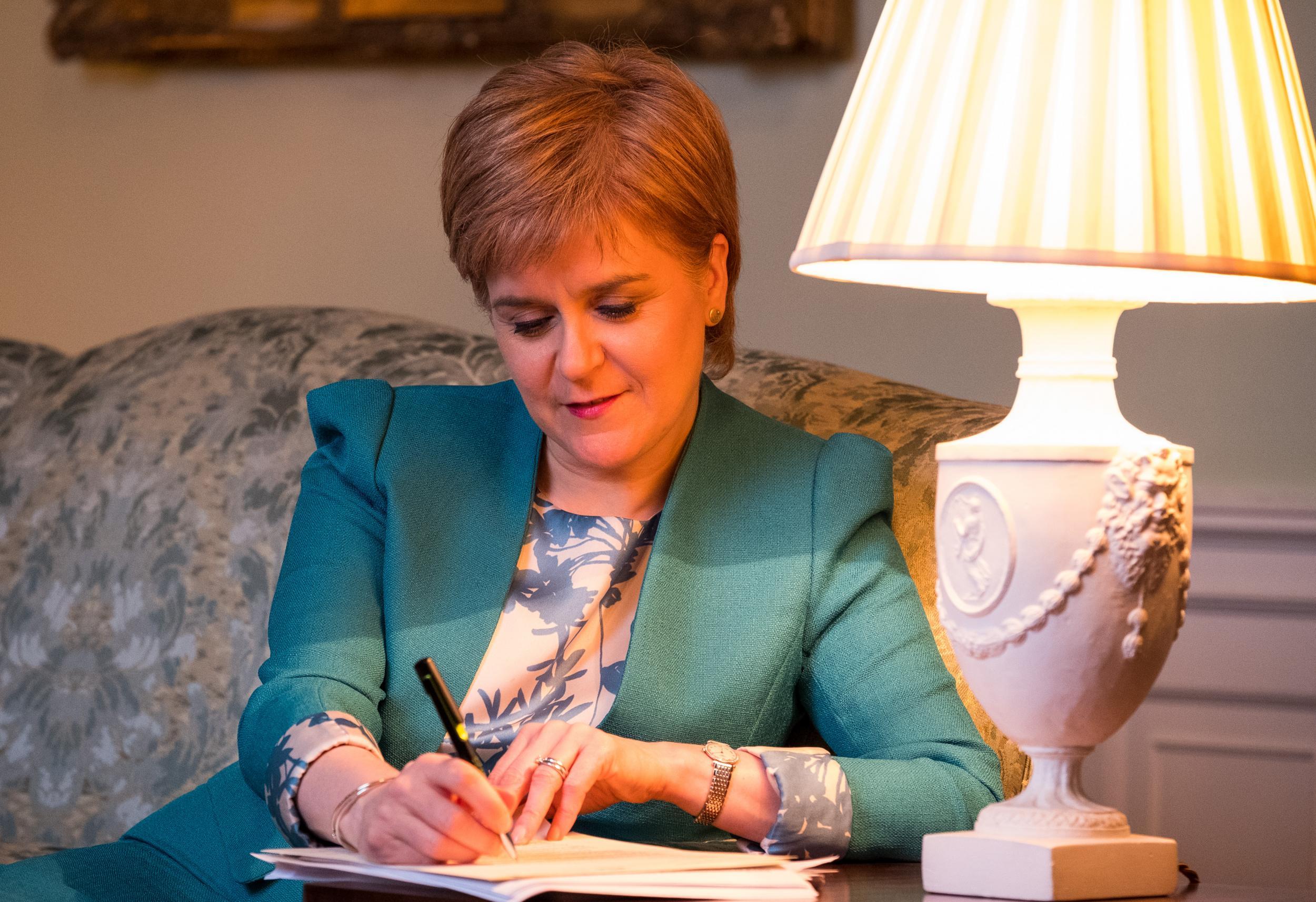I never thought I would support Scottish independence – but Nicola Sturgeon’s feminism is pushing me towards it
Yes, she's a career politician who is very good at talking the talk. But if her talk is to denounce discrimination, sexism and violence against women, these are words we all need to hear


Your support helps us to tell the story
From reproductive rights to climate change to Big Tech, The Independent is on the ground when the story is developing. Whether it's investigating the financials of Elon Musk's pro-Trump PAC or producing our latest documentary, 'The A Word', which shines a light on the American women fighting for reproductive rights, we know how important it is to parse out the facts from the messaging.
At such a critical moment in US history, we need reporters on the ground. Your donation allows us to keep sending journalists to speak to both sides of the story.
The Independent is trusted by Americans across the entire political spectrum. And unlike many other quality news outlets, we choose not to lock Americans out of our reporting and analysis with paywalls. We believe quality journalism should be available to everyone, paid for by those who can afford it.
Your support makes all the difference.Nicola Sturgeon faced a storm of criticism as she embarked on her “grievance tour” of the US this month, instead of focusing on negotiating a second referendum for Scottish independence. Yet one aspect of that visit was grossly overlooked.
At the Women in the World conference in New York – where she spoke openly to Tina Brown about her own miscarriage, the “misogynist” Donald Trump and the Daily Mail’s infamous “Legs-it” cover – her no-nonsense feminism made me warm towards the SNP and Scottish independence more than I ever have imagined, and in less than four years.
Yes, Sturgeon is a career politician who is very good at talking the talk. But if her talk is to denounce discrimination, sexism and violence against women, these are words everyone needs to hear. She is setting new societal norms and creating a more inclusive environment.
Sturgeon is vilified for believing strongly in independence ever since she was a teenager. But she grew up in a working class Scottish society under the rule of Margaret Thatcher. Who could blame her?
I’m still worried about independence, including falling oil prices, risking a stable currency and a worrying tendency to talk of “patriotism” and “forging our own destiny”.But when Sturgeon speaks openly about gender equality, it rings true and is profoundly encouraging. It is not just a “women’s issue” or a narrow issue that fails to take the wider picture into account. Gender equality, as she suggested, can play a part in ending conflicts and avoiding wars, it strengthens democracies and improves economies.
Scottish women, in particular, relate to her concerns. She said the new law in the UK, which requires women to prove they have been raped to receive child support, is “disgusting”. She was frustrated, she said, about reporters always asking her why she didn’t have children. She also rejected the habit of reducing women to “body parts” and what they wear.
Ultimately she has addressed the elephant in the room. Meanwhile Theresa May, who has done good things for women such as ratifying the Istanbul convention and addressing female genital mutilation, would appear to bend over backwards in public to avoid it.
Since 2014, Sturgeon argues that the circumstances regarding Scottish independence have changed, and she’s right.
In 2015, I was hopeful about Jeremy Corbyn’s landslide election and delighted with the launch of the Women’s Equality Party. In 2016, I was thrilled with the election of Sadiq Khan, the first Muslim to be mayor of London. But in 2017 I’m thoroughly fed up with the Tories cutting welfare, stigmatising immigrants, whipping up frenzy over “benefits scroungers” and using Brexit, the so-called “will of the people”, to roll back protections for workers and the environment.
By contrast, Sturgeon has this month signed a bill with California Governor Jerry Brown to agree to tackle climate change together, to show Scotland wants to be an “outward-looking, progressive, global citizen”.
It also seems possible that an independent Scotland under Sturgeon's leadership could re-join the EU. Frankly, Scotland’s fractured relationship with England is becoming increasingly obvious, the difference in perception of the two nations abroadincreasingly clear. Scotland and England are like Canada and the US, Iceland and Hungary, or Norway and Austria. How can we argue in a post-Brexit world that Scottish independence is a move towards nationalism? Brexit is the worst example of nationalism we have seen in the UK in modern history.
And how can Sturgeon be hated so much for betting her career on her dream, when so many men – Boris Johnson, David Cameron and Michael Gove, to give just three examples – have done the same and got away with it? The answer is, because she's a woman.
At the Women in the World conference, Sturgeon was asked about what it was like to have three women as the main political party leaders in Scotland. She warned against making the mistake of thinking we had won the battle to achieve gender equality. “It’s not enough to be a woman in politics – you have to do the right thing,” she said. That's a pretty clear hint to Theresa May.
If May continues to pretend she is not a woman leader – despite the fact that she has, ironically, been tasked with the clearing up the men’s Brexit mess – then she could lose my support for a United Kingdom. If she could lose me, I’m sure she could lose a lot of other voters, men and women alike.
Gender equality has the ability to transform every area of our lives for the better. If the Scottish people embrace Sturgeon’s message of equality, then they might be willing to follow her wherever she wants to go, even if that’s outside of the UK.
Join our commenting forum
Join thought-provoking conversations, follow other Independent readers and see their replies
Comments